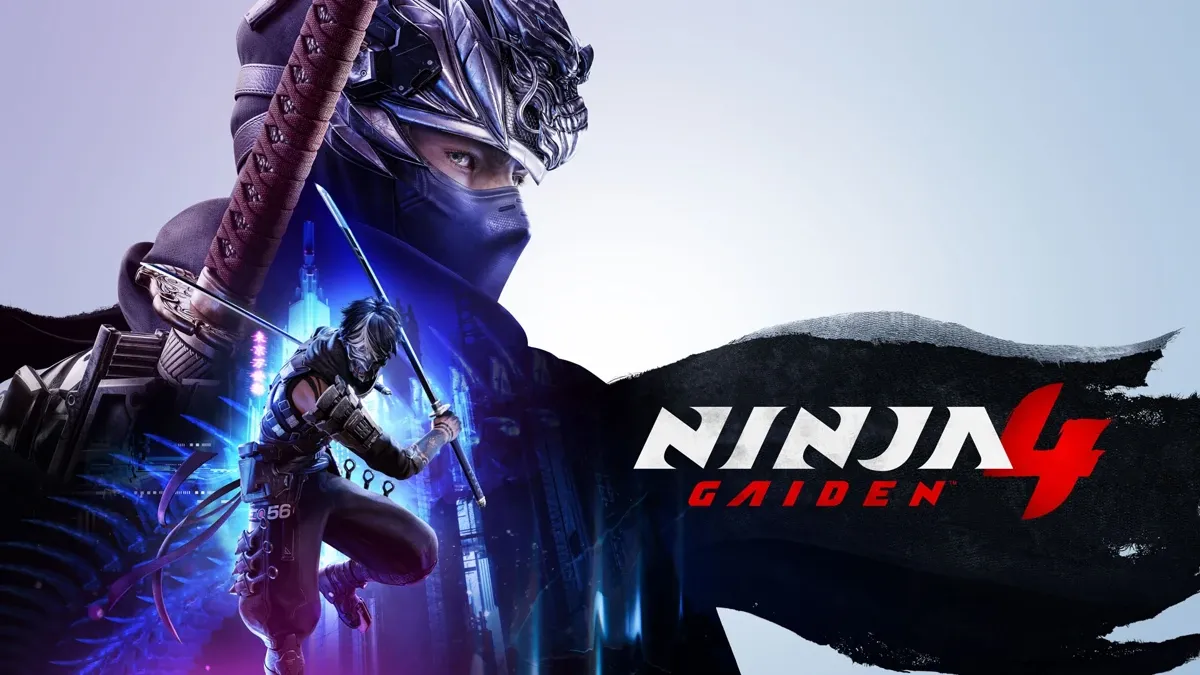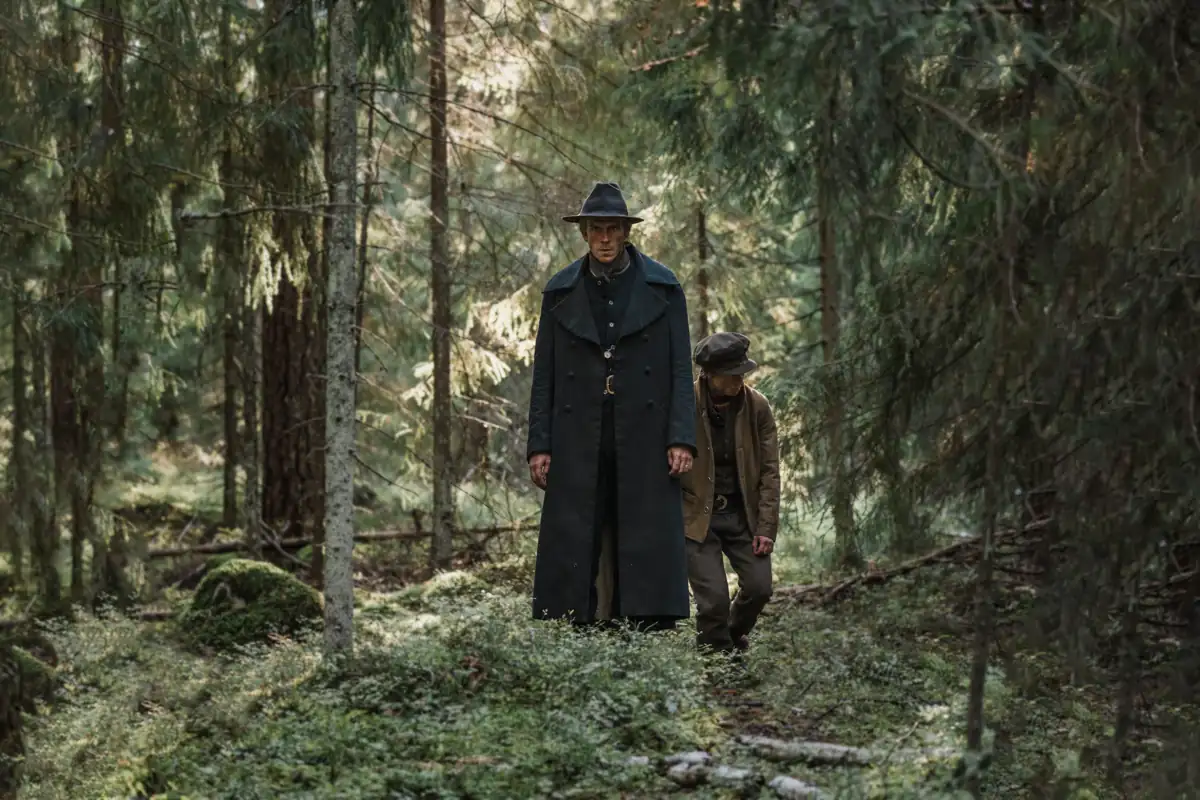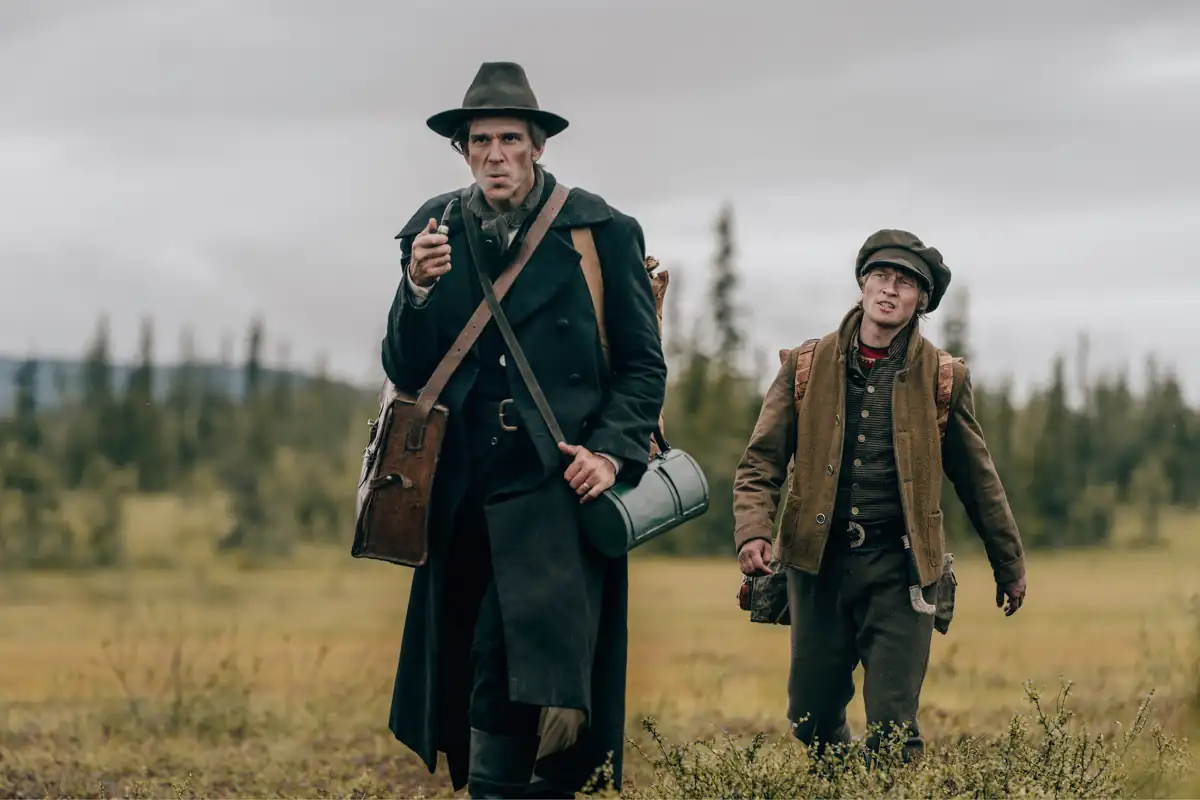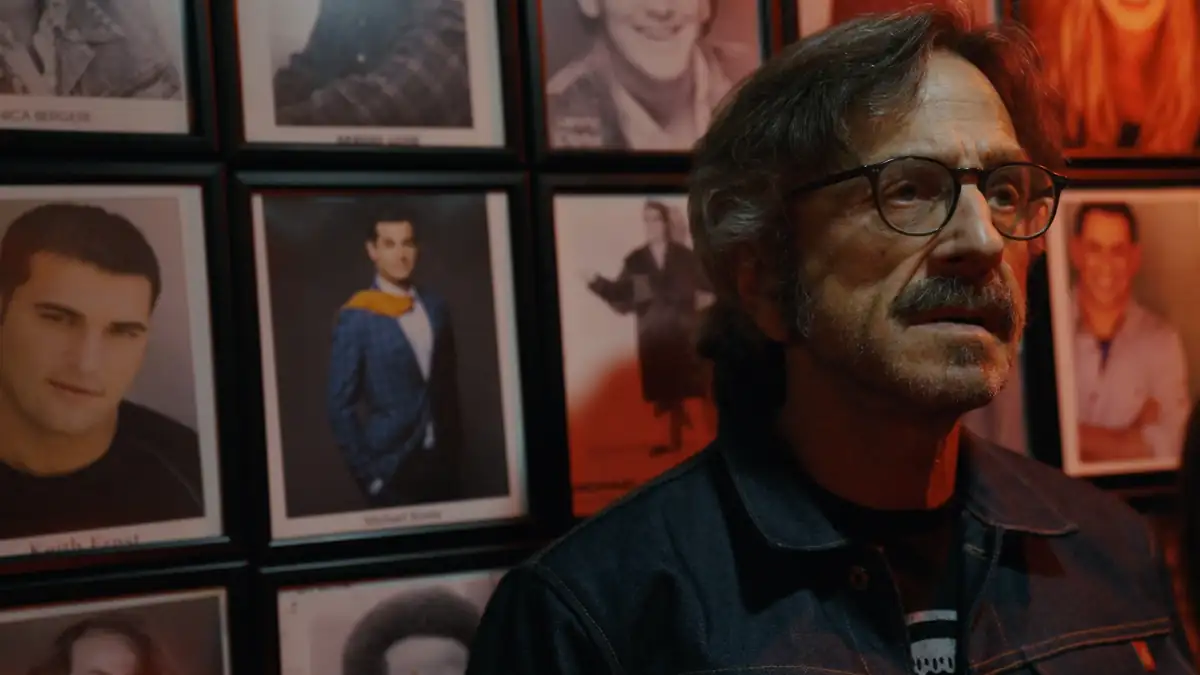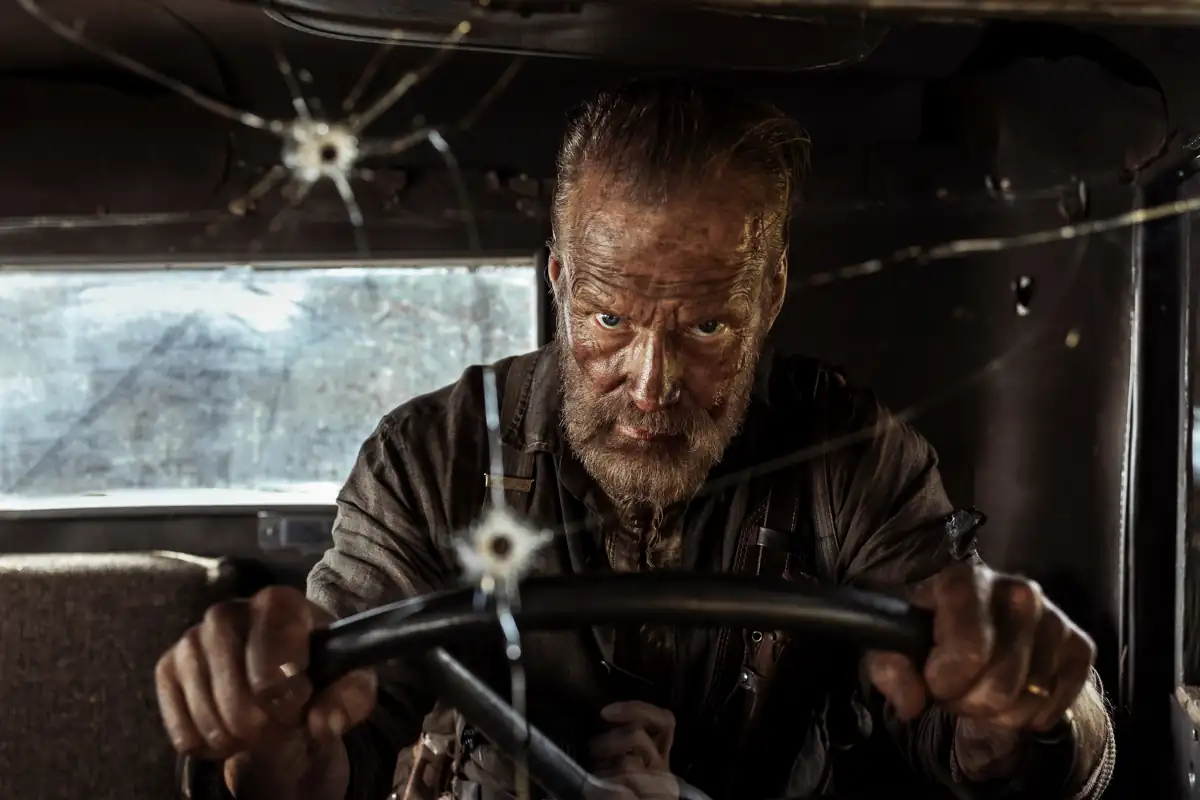(This interview is a part of our continuing Night Visions 2020 coverage. It has been edited for content and clarity.)
Hailing from Toronto, Ontario, Justin McConnell is a filmmaker, cinematographer, editor, writer, and jack-of-all-trades in the industry. His earlier works include films such as LIFECHANGER, SKULL WORLD, and BROKEN MILE.
His latest documentary, CLAPBOARD JUNGLE, premiered at Night Visions 2020: The New Abnormal last month. Making a visible impact on the audiences at the festival, especially myself, I was thrilled to land some time to talk with McConnell about his years-long process and how one survives the wilderness of filmmaking today.
On a personal level, this documentary meant a lot because it felt like finding someone wired the same way I am. It was almost a therapeutic experience.
I appreciate that. I tried to tell it like I saw things, and it does seem to be touching many people.
You’ve made a few docs before this; when was it that you sat down and realized this was the next film you’re doing?
In early 2014, a few months after Skull World was released, I was looking at what I could work on next. And I knew it would be a while before I’d get financing getting narrative fiction made. I was struggling with getting The Eternal produced, and it all kind of hit me that there hadn’t been that many people made that dealt with the creation, how do you actually get a movie made as an indie filmmaker without any ties to the business?
So in January, I figured I could start shooting something and collecting interviews, but I knew I didn’t have the money to follow anybody around like Skull World. I just thought that I might as well turn the camera on myself, as I was going on the path for the next few years. I figured that I couldn’t stop my life to follow someone else, but could do that by myself. It started growing from there.
One of the more challenging parts of the whole thing is to keep from being a vanity project. How did you go about that, despite this being a hugely personal and subjective documentary?
There were a few things. From the start, it was important that I wasn’t acting; that I wasn’t putting on a face of any kind. It was essential when I captured something true to how I felt at the time. I wasn’t going to shy away from the dark or ugly moment. That was the first part. To make sure it was raw and not performative.
It shifted into something where there weren’t a lot of untrue moments. That wasn’t the footage I was collecting. I was rarely, if ever, putting on an act. When shooting past stuff, I noticed people having this habit of switching on when the camera is on them. I wanted just to be me. I just talk – it’s a stream of consciousness. Between (associate producers) Darryl Shaw, Kevin Burke, and Avi Federgreen and the test audiences, they helped shape CLAPBOARD JUNGLE into what it is. Even at the beginning of the editing process, I was very blunt and said I didn’t want it to be a vanity process. I wanted it to be candid.
How did you go about getting people involved? Did you have a wish list going in?
I had a wishlist to some degree. I knew I wanted to get Frank Hannenlauter, Paul Schrader, and Lloyd Kaufman. Simultaneously, that trip was to see John Carpenter play live. But I’d plan out a festival, I’d look at who’d be on-site, and I collected most interviews I collected that way.
Sometimes I’d reach ahead and book ahead; sometimes it was that I’d run by them at a party or something. That’s how I collected a lot of them. Chris Alexander, the editor of Fangoria, who had access to a lot of people, arranged some of them. He helped get Guillermo Del Toro as well. I got the Del Toro interview the same day I got the George Romero interview, which I made for the Arrow video release of the Romero box set. We did that at Romero’s house.
Once I had been in production for about six months, and we had some larger personalities getting the interviews, it became a lot easier because it legitimized the project to some degree. But many people also didn’t want to join who I’d have loved to get—people like Gale Anne Hurd or Ernest Dickerson and Jennifer Lynch. I was trying hard to get more balance, and I just didn’t have access. But I’m thrilled with who I was able to get. We interviewed around 120 people. It was years of taking opportunities where they dropped, lining up the interviews, and hoping for the best.
It’s such a melancholy time capsule for people like Romero, Haag, and Cohen, but there is some kind of blessing in hearing them again.
I don’t know if I’d call it a blessing, considering four of the people I interviewed are now dead. But it’s good to know that their voice continues onward, even more so on the eight-episode series that we’re working on with extended content.
It’s good that their voice continues onward, even more so on the eight-episode series that we’re working on with extended content. With Romero, Cohen, and Sid Haag, we get maybe a minute or two of them in the documentary. The Romero interview we have is over an hour, and Dick Miller’s was quite long too. The extended content, they have so much more fascinating stuff to say, and it will show up in the additional material that comes out of this project. It’s great that their legacy can live on, and that people can get new perspectives on them even as they’ve left this world. It is so sad that they’ve gone, but I feel incredibly fortunate that I got to meet them.
The day we did the Romero/Del Toro talk, it was an interview, but afterward, we stayed there, had dinner, drank whiskey, and just talked about movies for hours. It’s one of the moments of my life I’ll never forget. He passed away shortly after that. I had idolized him my whole life, so sitting there and understanding how similar we were and what a nice man he was, made me feel fortunate to have been in that position before it was too late to ever be in that position.
How is the series itself coming along?
We’re in post-production, and it’s eight episodes long; we have a pilot and three more done. Each episode is a specific topic. My story isn’t really in it much or at all. The idea is to make a film school in a box. So that genuinely interested people can dive in. It’s fast-paced and entertaining, but the format is much more akin to something like HEART OF DARKNESS, something more educational. We’re not making a highlight reel, but something someone can sit with and absorb a lot of information. It’s a lot of footage, and there’s still a lot of work left, but hopefully, we’ll finish by next year, and it’ll be out before the summer.
Will it be out on DVD, Blu-ray, or streaming media?
It’ll be on streaming platforms, but we’re negotiating with some partners, so it depends on what they allow us to do and depending on where it’s available. I’m hoping to put into individual episodes or the whole thing on a platform available for everyone to watch wherever they are in the world. But that depends on the deals we’re currently talking about.
Very few directors talk about their work style on set. I like that it’s such a big part of CLAPBOARD JUNGLE. Was that something you set out to do, or is it something that just happened as you recorded footage?
Honestly, I watch special features all the time. I love the in-depth on-set analysis and behind-the-scenes footage. Some of my favorite docs are heavily involved in the day-to-day footage. So from the very beginning, I’ve been very intent on showing all that stuff, and if you look at the previous things I’ve put out (the DVD for The collapsed has an 85-minute doc), they’re very into the nitty-gritty stuff on how things get done. It’s literally the day-to-day process of how we made stuff.
I’m a massive supporter of showing the recipe. It helps people learn. That’s what the bonus features are for; they’re a demonstration so they can learn more about the film they like. For people who are getting into film and aren’t looking at bonus features, that’s an extended film school you’re ignoring.
When I started making CLAPBOARD JUNGLE, I didn’t know if I was going to get a film off the ground as it happened, because I can’t predict the future, but I wanted to show as much as I could but didn’t know if I could do that until we got Lifechanger green lit and on camera.
There’s a part in CLAPBOARD JUNGLE where Del Toro says that making films is wonderful, but selling them is hell. Would you agree with that?
I think that the complicated part of raising money is a disappointment. It takes forever, and it becomes a consuming process, both mentally and with your time. You are trying to knock on doors and convince people to become partners. The bigger the movie and unless you’re dealing with a studio, it takes so many puzzle pieces to get green lit. Especially in the indie world, where you need five or six entities to come together and agree on the terms of that film and all be on the same page.
All it takes is one of those elements to drop and out, and you’re suddenly losing all the financing elements. Even if one of them reneges, you’ve lost 20% of your budget, and if you find that in time the others move on, or a recession hits, or anything hits, that means the money that was viable for a moment isn’t there six months later.
That aspect of financing is soul-crushing, and it’s tough to explain to someone who isn’t in this how excited you can get when you raise 2 million dollars for something like this – it’s so crazy to think how did that happen. And then if that doesn’t happen, how do you explain that you lost access to that financing? That’s a big hit for your mental well-being. And then you have to live with it because you’re in this business, and you know that it happens. “Well, try again!” And that part is soul-crushing, and it occurs at all levels of the business. Sometimes it’s just luck, good or bad; it’s very, very difficult.
But on the positive side, raising this money means traveling the world and going to festivals; there’s a fringe to it where you’re out there, and you’re meeting people in places that were once behind doors you couldn’t get into before. It does mitigate the soul-crushing reality that there is otherwise.
When you work on a new script do you consciously take into consideration the probable budget or do you just pour it all out regardless of the cost?
It depends on the project. I always think about how this will get made when I’m writing, certainly. But it depends on the project. A lot of the stuff I write is low-budget because I’m relatively confident it’ll get made for me.
But I wrote a thing called Tracer that’s a sci-fi film set in the future, and it’s at minimum a five million dollar picture, but will be more comfortable at 30 million. I didn’t give myself any handcuffs and just wrote what I wanted to see on screen. But that’s different from me designing the project from the beginning knowing I have an x amount of dollars that I can pull, so then I’ll reverse engineer the project to fit into what I can put together. But if I have a great idea that I just want to write, I won’t limit myself.
Like you’re working through the writing, how would you shoot this if you did it on set? Instead of decapitation, I’ll stab them through the throat, because it’s a more straightforward gag. Something like THE COLLAPSED; that was a movie I wrote too fast, and I regret doing it so. Still, I went with that with “what locations do I have access to,” and I wrote around those locations because I knew I had around 40k Canadian to make that film, and I knew I had to work with what I had.
What would you say to those who are going in for the first time to pitch things and getting that door slammed to their face?
I think you have to have faith. If you believe in your abilities and, early on, you’ll have a lot of self-doubts, the most important thing is to believe in yourself at the end of the day. Even if the door slams in your face, you’ve already made it to a point where someone is listening to you who can make this movie happen. There are a lot of other doors. Feel free to be disappointed; it’s only natural. It can be very depressing. Especially when it comes after months of work and things just stop. That can be tough. Just know that everyone is going to go through the same thing to some degree. It’s just the way the game is played.
Many factors go into a yes decision that isn’t necessary to do with you. There’s a saying that the easiest thing the company says is no because they don’t have to do anything else after that. So they say no more than anything else.
But it does require a lot more. It’s just a ton of work they’ve added to their plate. A lot of financiers are representatives for a pool of other people who invest in a film. So they have to make very calculated decisions. Even if the pitch is excellent, it won’t happen if it doesn’t make sense on financially.
But what you can do is get better, don’t get so invested in why did this happen, why not me, etc., because, firstly, it’ll just lead to depression and crushing disillusionment, and you might move slower or give up or whatever. But if you realize that you’ll have more opportunities if you don’t give up.
So you just keep moving forward.





